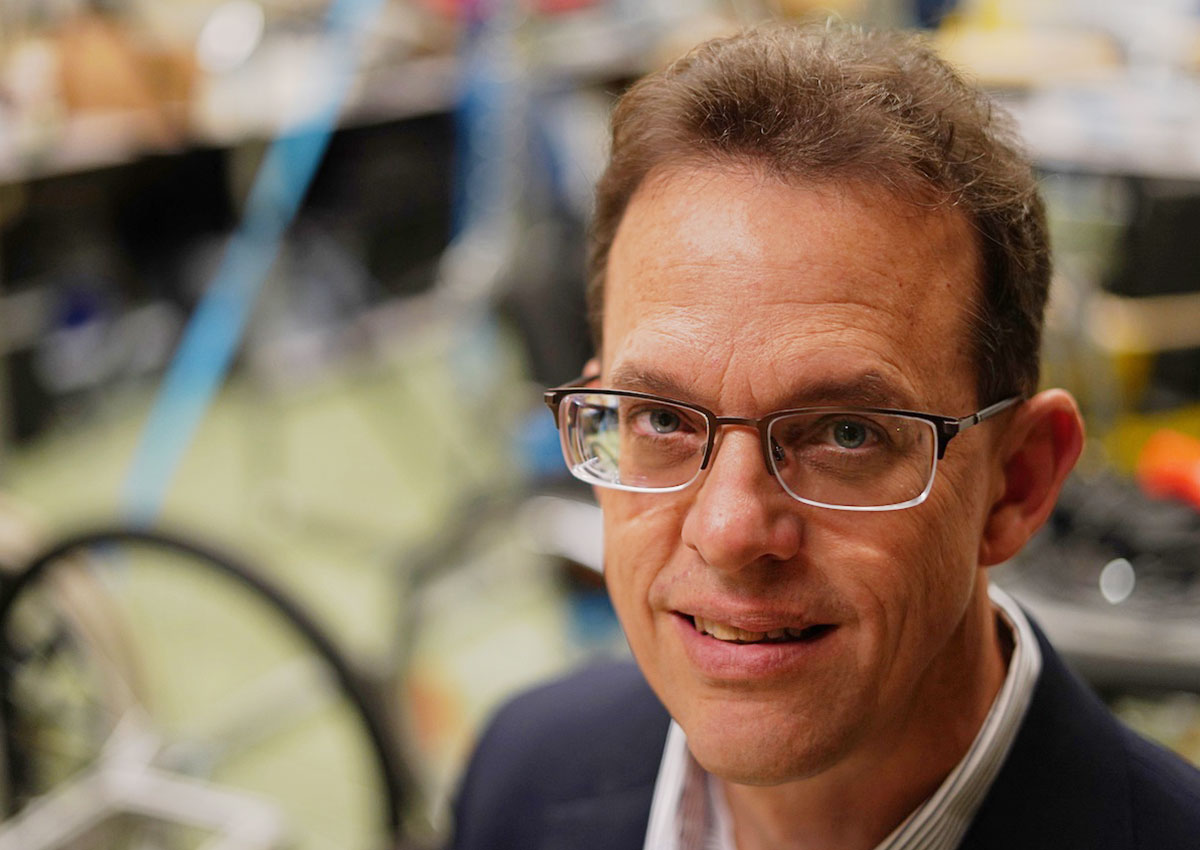Norman Reese - Mechanical Engineering Spotlight
Norman Reese, Associate Professor of Mechanical Engineering Technology, talks about the essential spiritual component of his role as an instructor in pointing students to Christ, and the fulfilling work students get to be a part of such as the Frontier Wheelchairs which engineers wheelchairs for the developing world.
Learn more about Global Service Learning and Frontier Wheelchairs
EDUCATION
- M.Eng. Mechanical Engineering – University of Colorado, 1997
- B.S. Engineering (Mechanical) – LeTourneau University, 1991
University Faculty since 2010
Registered Professional Engineer, State of Colorado
COURSES TAUGHT
- ENGR 1311 Manufacturing Processes Lab
- GETC 2313 Materials Technology
- GETC 3323 Modern Manufacturing Methods
- METC 2013 Statics
- METC 2023 Dynamics
- METC 3323 Strength of Materials
- METC 4413 Kinematics of Machines
EXPERIENCE
- NASA - Structural design and test. Conducted testing, mechanical design, stress analysis, and project management of various space shuttle hardware.
- Peak Industries - Project engineer for manufacturing several biomedical and electromechanical products. Managed the engineering department of 19 technical personnel who oversaw production of $50 million of products a year.
- Frontline BioEnergy - Co-founded and managed this bioenergy startup which designed and installed one of the largest biomass gasifiers in operation in the country. Using partial oxidation, the fluid bed gasifier converts wood residues to produce gas in order to fire the steam boilers at an ethanol plant.
Personal Bio
I have always liked to build things. As a kid I loved building go-carts, boats, and model rockets. So when I found out you can do that for an occupation, I quickly decided to become an engineer.
When it came time to choosing a college, I wanted a place where I could be significant, not just freshman #13, 417. Plus, I wanted to learn more about God, as well as engineering. So I chose to attend LeTourneau University, one of the nation’s best Christian engineering schools. I never regretted it.
At LeTourneau I found many other young people like me, and people I wanted to be more like – students modifying their car engines, attaching a windsurfing sail to a skate board, pulling pranks in the middle of the night, and gathering to pray at any time day and night. One of the best things about LeTourneau were the Godly professors – people who knew their profession and knew God in a way I had rarely seen. LeTourneau also has Christian fraternities, called “societies,” where I had deeper brotherhood with my housemates.
Growing up, I had always wanted to work for NASA to build space equipment. However, I was worried that going to a small school like LeTourneau would hurt my chances to get hired at such a competitive employer. But God knew better. He gave me my dream when I started co-op’ing at Johnson Space Center as a junior in college. This was an arrangement where I worked full time in Houston every-other semester. Though co-op’ing means it takes longer to graduate, you actually get to start working earlier.
To fast forward, NASA wasn’t all I’d hoped it would be (God has dreams for us that are even better than our own dreams). So I went to grad school at University of Colorado and then worked in manufacturing building cell phone test machines, DNA synthesizers, and dialysis machines, which was a lot of fun. Then I started a renewable energy company with a friend that went up, then down. Then I got the opportunity to return to LeTourneau as a professor. I have always been touched by teaching and how we can help each other along our journeys.
Here at LeTourneau I teach many of the core mechanical engineering technology courses – mostly how to build things. But I also teach a senior design course on designing and testing wheelchairs for the developing world. Most years I take a group of students to a country like Guatemala or South Africa to help them build better wheelchairs for the people in their countries.
